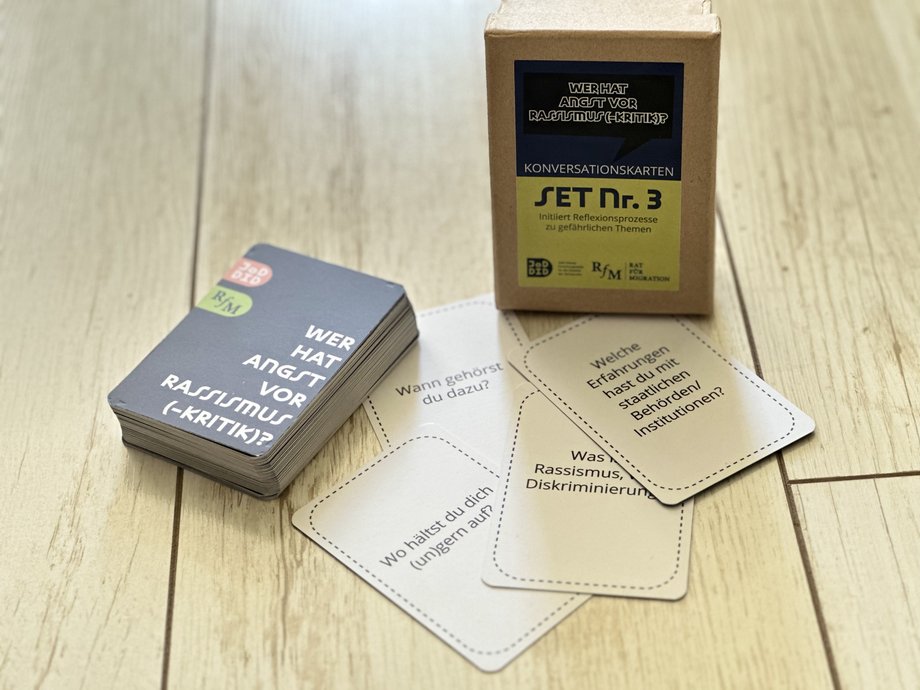Who is afraid of racism (criticism)? Conversation cards to initiate reflection processes on dangerous topics
Is racism evil? Who experiences racism? Who (doesn't) have to deal with racism? Who can take a break from racism? Racism is not an easy topic for political education work. How can you get into the topic without retraumatising those affected on the one hand and not directly losing the sceptics of racism criticism on the other? How can you recognise where participants stand in the context of racism? How can we recognise, share and reflect on (our own) privileges or experiences of racism as a person affected by or socialised by racism? A set of conversation cards on the topic of "Who is afraid of racism (criticism)?" from TU Dresden is designed to help with this. The cards with short, unusual, sometimes funny, but also fundamental and also very serious questions about experiences of exclusion and racism invite you to become aware of your own experiences, ways of thinking and structures of behaviour, to share them together and to reflect on them. The set can be used in both youth work and adult education and can be used with any target group.
Number of participants
Minimum: 8
Optimum: 15-17
Maximum: 21
Duration
20-30 minutes, depending on the game idea
Space
Normal seminar room with large open space, additional rooms for group work if necessary
Set-up and instructions
You-Me-We
Form small groups. In the group, find at least two cards in the set to which you would give very similar answers/you agree and at least two cards where you disagree or have very different experiences. Come back to the large group. Introduce the cards and let people position themselves in the room in relation to your answers.
Blind audition
Each person in the room freely chooses a card and answers it face down and anonymously on a piece of paper. All answers are collected. They must then be assigned to the questions in a first step. The group discusses the assignment process and the answers - without being forced to visualise which answer they have formulated themselves.
Press conference
Pairs are formed. Three questions are drawn per person. The questions are answered in interview style. Both people take notes for the other. Then everyone comes together in the group. Now comes the press conference. In this, the teams come forward and introduce each other with the notes on the three answers to the questions.
Note: The card set depends on people being able to engage with the questions. However, this also means that "dangerous" cards can always be put aside.
Some questions may be particularly dangerous for some people: give everyone the opportunity to make a conscious decision about their participation, e.g. with a trigger warning. ("Attention - today we are talking about racism!")
The game is part of our topic box on sensitivity to discrimination, but can also be borrowed separately.

